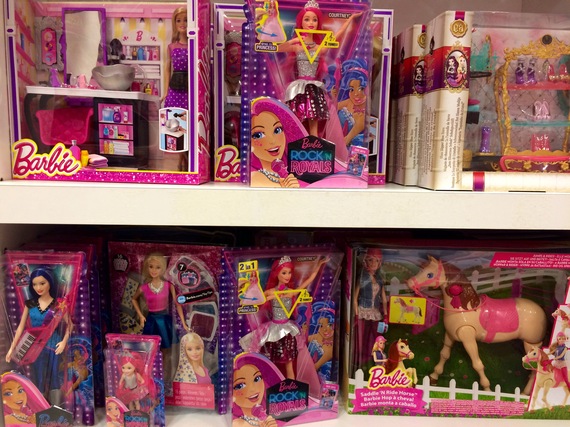The writer Julia Baird recently explored the idea of ugliness in a New York Times opinion piece; that those with "flawed features" in a world of "facial inequality" still struggle against the "advantage of beauty".
Beauty can certainly be an asset. In the same way that the rich get richer, women deemed "beautiful" can command a room, propagating with Darwinian superiority, if not the species, then, at the very least, ripples of attention. And those less endowed with physical attractiveness can feel discriminated against.
Yet these days, concepts of beauty and ugliness are changing, when the latter need not mean a lifetime relegated to the sidelines of an uneven playing field. Hair colour, clothes, diet and cosmetic tweaking of an unloved nose can enhance those who feel physically disadvantaged. More importantly, what now constitutes beauty on our streets and magazine covers is often interesting ethnic mixes with a hard-to-define physical appeal. This year's Pirelli calendar is an ode to the new concept of female beauty: achievement. Tennis player Serena Williams, singer/writer Patti Smith and film producer Kathleen Kennedy are today's pinups in ways that would be unheard of thirty years ago.
The worry is if a child, often living precariously through the images of his or her peers on social media, feels ugly and, despite reminders of the Duckling saga, fails to be convinced that plain and podgy is just fine. Dan Piraro's "Bizarro" cartoon comes to mind: strident creatures waving stick-looking arms, shouting "Who are we?", (Answer: "Women!"), "What Do We Want?" (Answer: "We don't Know!"), "When Do We Want It?" (Answer: "Right Now!"). Well, girls of twelve want cheekbones. Even blooming swans will struggle with self-image/esteem if they were once goofy and uncoordinated cygnets with braces.
Ms Baird worries about the accumulation of Barbie dolls in her young daughter's bedroom contributing to the prejudice against ugliness. She prides herself on buying an Eleanor Roosevelt doll that her daughter now sleeps with. I think I'd worry more about my daughter taking Eleanor Roosevelt to bed than a Barbie. The truth is that those of us who played and slept with these babes of nipped-in waists and impossibly-long limbs with implausibly short arms, have no more discriminated against ugliness than eating party candy has made us eschew savoury food.
Parents powerfully sway a child's powers of discrimination. And, although those hovering in helicopters can provide wise words about the real value of beauty, they can also overplay the importance of achievement. Mountains of bedraggled barbie dolls, on the other hand, all in various states of disarray - maimed and twisted limbs enveloped by once glistening hair subjected to one too many baths - permeate a child's world with hours of, well, fun. The kind of fun that in a politically self-correcting, agenda-based world can seem refreshingly innocent. It takes all of ten minutes after opening the perfection that is inside a Barbie box to accept the imperfect, when pristine outfits end up as disparate remnants of a once co-ordinating ensemble: a bikini top paired with fake fur trousers, thigh-high boots with a fleece, and plastic lumps and bumps, simulating intimate body parts, casually exposed or half covered in frilly underwear.
Such everyday denudations are not responsible for objectifying, nor for an intolerance of ugliness. Access to the internet from a young age does that perfectly well on its own. Eyeing a stranger from afar and internally whispering "ugh" is as likely to emanate from watching a parent's insensitive behaviour, as from the detachment used to randomly judge others on social media. Today's exposure to a whole world of swans at the touch of a button raises unhealthy expectations about attractiveness.
Dove soap's ad campaign of 2013, "Real Beauty Sketches", asked members of the public to describe someone they had met the day before, and revealed much about the way we judge the physical appearance of others. Emotional connection outweighs any abstract prejudice of how a person looks. Most of us are darned if we can see ugliness in those we know and interact with in the flesh. Greater engagement, of the non-digital variety, with our environment and with those who share it, softens much of the prejudice against ugliness, at a time when little girls should still embrace pink and dress their Barbie dolls in cool outfits.
